Top 5 Benefits Of Kokum Butter For Skin, Hair, And Health
The beneficial properties of the Indian plant butter can help one achieve soft and smooth skin.
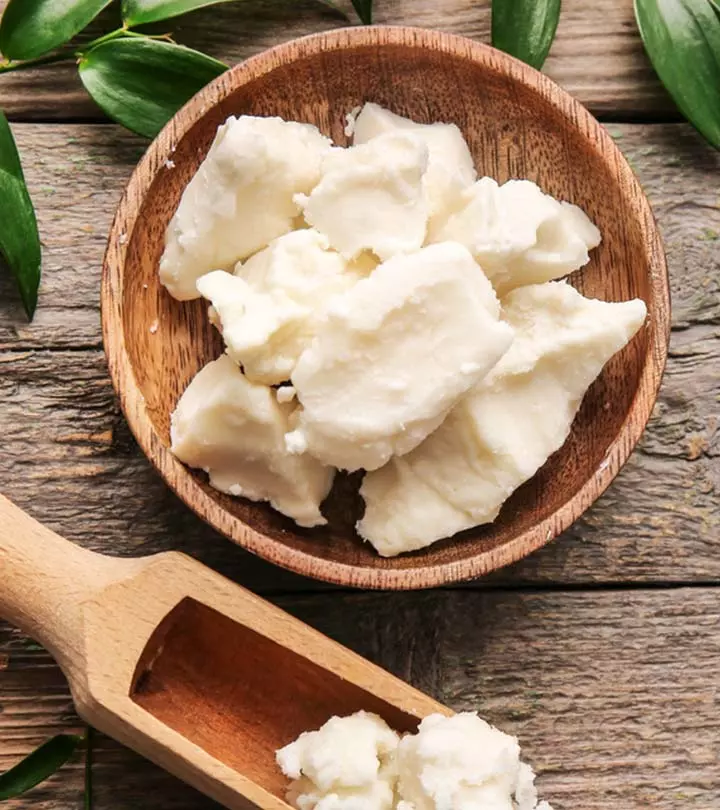
Image: Shutterstock
Kokum butter is renowned for its hydrating properties. This butter is made from the seeds of a fruit called kokum. It is similar to shea butter and cocoa butter but better. It is packed with essential fatty acids that are said to help slow down aging. The rich nourishing properties of kokum butter moisturize, soften, and protect dry skin, hair, and lips. Learn more about the benefits of kokum butter for your health and how to use it in this article.
 Know Your Ingredient: Kokum Butter
Know Your Ingredient: Kokum ButterWhat Is It?
A semi-solid emulsion made by extracting the fat from the seeds of the Kokum fruit.
What Are Its Benefits?
It moisturizes the skin, reduces inflammation, promotes hair growth, and treats dysentery, diarrhea, tuberculosis, and scorbutic diseases.
Who Can Use It?
It is safe to use for all skin and hair types. It can be topically applied as a moisturizer and also to reduce and relieve inflammation.
How Often?
Due to its high-fat content, it should be consumed in moderation and as a part of a balanced diet once a day.
Caution
Avoid using Kokum butter if you experience skin inflammation or stomach ache and diarrhea.
In This Article
What Is Kokum Butter?
Kokum butter is the oil obtained from the seeds of Indian mangosteen or kokum (Garcinia indica). Kokum is a native plant of the western coastal areas of India.
These dark purple tropical fruits are spherical and have edible pulp. Each fruit contains 5 to 8 brown seeds. The seeds are rich in fats and essential fatty acids. Kokum butter is the fat contained in the kokum seed, which remains solid at room temperature.
Kokum butter varies in color from grayish-white to white with a yellowish tinge. The yellowish raw kokum butter needs to be refined to become white. When it ages or becomes rancid, it turns brown. Its scent is very faint or absent. It is mildly flavored and edible and has a shelf life of about one year.
Kokum butter is produced through a lengthy process. First, sun-dried seeds are chopped and boiled in water. Next, the oily upper layer is collected in a different container. As the fat cools, it becomes solid and is subsequently cleaned by remelting and filtering (1).
The moisturizing properties of kokum butter make it ideal for a wide range of cosmetic applications. It is also edible and is used as a butter or cocoa butter substitute. All of this is made possible by its high fatty acid content.
Check out the composition of kokum butter in the next section.
Key Takeaways
- Kokum butter is a vegan spread prepared from the Garcinia indica fruit’s seeds.
- Antioxidants, fatty acids, and anti-inflammatory effects are abundant in kokum butter.
- Because of its benefits in nourishing and hydrating the skin, it has wide applications in skincare products.
- Lip balms and other cosmetics contain kokum butter as a natural substitute for petroleum-based products.
- It has a reputation for calming dry, irritated, and cracked skin.
- All skin types, even those with sensitive skin, can safely use kokum butter, which is readily absorbed and does not leave a greasy aftertaste.
Composition Of Kokum Butter
The major fatty acids present in kokum butter are (2):
| Fatty Acid | Percentage (%) Content |
|---|---|
| Palmitic acid | 2 |
| Stearic acid | 49 |
| Oleic acid | 49 |
It also contains the following fatty acids (3):
| Fatty Acid | Percentage (%) Content |
|---|---|
| Palmitic acid | 3.25 |
| Stearic acid | 49.33 |
| Elaidic acid | 3.00 |
| Oleic acid | 34.42 |
| Linoleic acid | 5.25 |
| Arachidic acid | 1.20 |
| Eicosenoic acid | 2.25 |
| Other fatty acids | 2.30 |
Palmitic acid is a natural surfactant that is excellent for skin nourishment. The butter’s high oleic acid content makes it less likely to spoil so that it can be stored for longer periods (3).
These fatty acids, along with kokum butter’s antioxidant properties and vitamin E content, make it a popular ingredient in cosmetics, hair conditioners, soaps, and shampoos. Learn more about the benefits of kokum butter for your skin, hair, and health in the next section.
According to ancient Ayurvedic texts, kokum butter was used to treat ear infections, reduce pain caused by arthritis, prevent infections, and treat sores. This natural remedy may help address various skin care concerns, such as scars and wrinkles while also promoting anti-aging benefits. It is a popular hair care ingredient as it may help deal with split ends, improve scalp health, reduce dandruff, and soothe psoriasis.
Potential Benefits Of Kokum Butter
1. Moisturizes The Skin

Kokum butter has excellent emollienti The moisturizing property of a substance to soften and soothe the skin, it is often used in skincare products like body lotion. properties. In addition, its healthy fatty acids improve the moisture barrier of the skin. Maintaining a healthy barrier on your skin is key to keeping it supple and hydrated (4).
Caryn Prince, a beauty vlogger, shared her recipe for her DIY kokum butter in her video. She further elaborated how this helped improve her skin health. She said, “It keeps my skin so smooth and so soft (i).”
Kokum butter is also said to protect your skin from cell damage and restore its elasticity. Hence, it is used in a variety of cosmetic products, such as lotions, creams, lip balms, and soaps (4).
 Quick Tip
Quick Tip2. May Heal Wounds

A study conducted in India found that applying kokum butter to cracked heels helps to heal them (5).
Kokum butter is also believed to have wound-healing properties and to be helpful in treating ulcers, fissured lips, chapped skin, and inflammatory sores (6).
3. May Reduce Inflammation

Kokum butter is regarded as a demulcent, i.e., it relieves inflammation or irritation. While there is limited scientific evidence available, it has found many applications in skin and hair products, acne products, and skin tonics (7).
4. Soothes The Skin
Kokum butter heals and soothes inflamed skin. It provides excellent relief from burns, chafed skin, and scalds (8).
Applying this butter makes your skin soft and supple and gives it a radiant glow due to its elasticity-restoring properties. It has a light texture, and it does not clog pores, so it prevents acne. Its antioxidant and anti-inflammatory properties help maintain healthy skin (7), (8).
5. Has A High Melting Point
Compared to other kinds of butter, kokum butter has a higher melting point. Since it slightly melts at skin temperature, it is the perfect material for lipsticks and balms (8).
6. Can Be Used In Confectionery
You can substitute kokum butter for cocoa butter in recipes that call for it.
It has been reported that kokum butter can be used instead of cocoa butter in chocolates. Various proportions of kokum fat are added to dark and milk chocolate formulations in place of cocoa butter. As kokum fat is added to chocolate, its hardness increases. A high level of fatty acid concentration, combined with its solidification properties, makes it a perfect confectionary fat (9).
Since kokum butter has a high melting point (40°C), it can be used to increase chocolate’s heat resistance and hardness in combination with cocoa butter. In countries with hot climates, it helps prevent chocolate from becoming soft and losing its consistency due to heat (9).
7. Traditional Medicine
Kokum butter is traditionally used as a medicine in treating dysenteryi An infection of the intestines that leads to diarrhea with blood and mucus. Also known as infectious diarrhea. , diarrhea, tuberculosis, and scorbutici Commonly called scurvy, it is a disease caused by the deficiency of vitamin C in the body and leads to symptoms like fatigue and bruising. (scurvy-related) diseases (5).
It is not widely known what health benefits kokum butter offers due to its limited availability. It is typically used as a potent moisturizer with wound-healing properties. So, let’s check out how to make the most of this nourishing plant butter.
How To Use Kokum Butter
1. Hair

Have you ever thought of using hair butter for hair growth? Not yet! Know about kokum butter. It is a potent solution for hair issues, as it may help strengthen the hair follicles and encourage healthy hair growth.
How To Use
- Hair Mask: Massage your scalp in a circular motion with a small amount of kokum butter after sectioning off your hair.
- Pre-shampoo Treatment: Brush kokum butter through your hair and leave it on for about an hour before shampooing.
You can use kokum butter as a nightly scalp treatment.
For additional benefits, blend it with coconut oil or any oil of your choice.
2. Skin
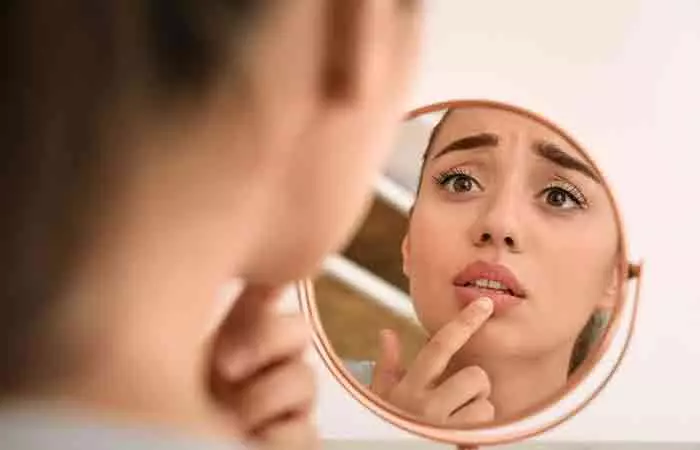
Kokum butter is a lightweight and non-comedogenici The ability of a substance or agent to prevent clogged pores, often used to label skincare products that don’t block open pores. moisturizer that works wonders on dry, chapped, and irritated skin.
How To Use
- Body Butter: Melt 3 tablespoons of kokum butter and whip it. Add a few drops of jojoba or apricot oil and apply it to the skin.
- Face Mask: Mix 2 tablespoons of kokum butter (melted and whipped), aloe vera gel, and any carrier oil of your choice. Apply it on the face and neck and wash it off after 15 minutes.
- Chapped Lips: Apply a little dab of kokum butter twice a day to maintain the softness and smoothness of your lips.
You can also use kokum butter to make soap, lotion, and conditioner at home. However, don’t use more than 5% of kokum butter in your formulations.
3. Food
Kokum butter is a great substitute for cocoa butter. It has no distinct taste and aroma, so it can be added to any confectionery without overpowering it. Although it’s edible, kokum butter is commonly used for cosmetic purposes. In the next section, check out an easy kokum butter recipe you can try at home.
Kokum Butter Recipe
Kokum Butter Body Balm
Ingredients
- 1 cup of raw kokum butter
- 6 tablespoons of almond oil
- 6 tablespoons of coconut oil
- 10-15 drops of lavender essential oil
- 1 teaspoon of beeswax
How To Prepare
- Combine the kokum butter and beeswax in a glass bowl. Set the bowl on a double boiler until the wax and butter melt.
- Add almond oil and coconut oil to the mixture. Continue stirring for a few minutes.
- Remove from the heat and let the mixture cool down.
- Add the essential oil and mix well.
- Transfer the balm to a glass jar and store it in a cool, dry place
The uses of kokum butter are similar to those of cocoa butter and shea butter. Shea butter provides a similar range of benefits as kokum butter. So, which one is better, shea butter or kokum butter? Find out in the next section.
Kokum Butter Vs. Shea Butter
- DIY-friendly: Kokum butter is odorless, has a higher melting point, and is firmer than shea butter. As a result, you can use it to make DIY cosmetics, such as balms and soaps, more easily than shea butter.
- Scientifically Backed: Although both kinds of butter offer similar benefits, shea butter’s properties are supported by scientific research. The benefits of kokum butter are still being studied.
- Nutrient Profile: Kokum butter is not as nutrient-dense as shea butter.
- Availability: Shea butter is much cheaper and easier to obtain than kokum butter.
When taking all the above points into account, shea butter has a slight edge over kokum butter.
Side Effects Of Kokum Butter
There are no known side effects of applying kokum butter to the skin. However, it is recommended that you conduct a patch test on your arm before applying it to your face.
Infographic: How Kokum Butter Promotes Better Health
Kokum butter is used in acne products and skin tonics. Its emollient properties make it a good moisturizing agent in skin care products. However, it can also benefit your hair and health. Check out the infographic below read through its skin, hair, and health benefits.

Illustration: StyleCraze Design Team
The Bottom Line
Kokum butter is the fat extracted from the seeds of the tropical Indian fruit, kokum. Wound healing and intense hydration are the two best reasons for using kokum butter. It can also treat dry skin, hair, and scalp issues. It works similarly to other plant-based fats, such as cocoa butter and shea butter. While kokum butter is safe to use for most people, consult your healthcare provider before you start using it.
Frequently Asked Questions
Can kokum butter be used in cooking or baking?
Yes, kokum butter is a great substitute for cocoa butter, especially in warmer climates. Its high melting point helps maintain the shape and texture of your treats, even in hot weather.
Are people allergic to kokum butter?
Kokum butter may cause allergies in people who are extremely sensitive to nuts. As a result, perform a patch test on your arm before applying it to your face.
Is kokum good for eczema?
Anecdotal evidence suggests that kokum butter’s potent anti-inflammatory properties may help relieve eczema symptoms. However, no empirical evidence supports the claims.
Does kokum butter lighten skin?
Kokum butter is said to brighten and lighten your skin, which is amazing. The butter is light and gets absorbed super easily, plus it also has a rich content of antioxidants and Vitamin E in it, which will make your skin look and feel refreshed.
Is kokum butter anti aging?
Yes, it is believed that kokum butter possesses anti-aging properties because of its rich emollient and antioxidant qualities. Essential fatty acids present in Kokum butter help reduce the effects of aging while it is packed with vitamins like E and polyunsaturated fats such as omega-3 and omega-6. Anecdotal evidence suggests that it treats visible signs of aging, such as wrinkles, decreased resilience, increased fragility, and dryness.
Does kokum butter help with hyperpigmentation?
Yes, kokum butter is claimed to be beneficial in treating hyperpigmentation. Due to its high levels of Vitamins A and E, kokum butter is thought to lighten hyperpigmentation and prevent new patches from forming. Anecdotal evidence suggests that it can help even out your overall skin tone and encourage your skin to regenerate itself.
How to make face cream with kokum butter?
Face cream can be created by melting 1½ tablespoons of kokum butter, ½ tablespoon of shea butter, and 1 teaspoon of grated beeswax together in a double boiler or glass measuring cup over a pot of simmering water. Once melted, remove from heat and stir in 2 tablespoons of jojoba oil and 10 drops of essential oil if desired. Pour the mixture into a clean jar and let it cool and solidify before using. This homemade face cream recipe can be used as a moisturizer for the face and body.
Illustration: What Is Kokum Butter? Benefits Uses Side Effects
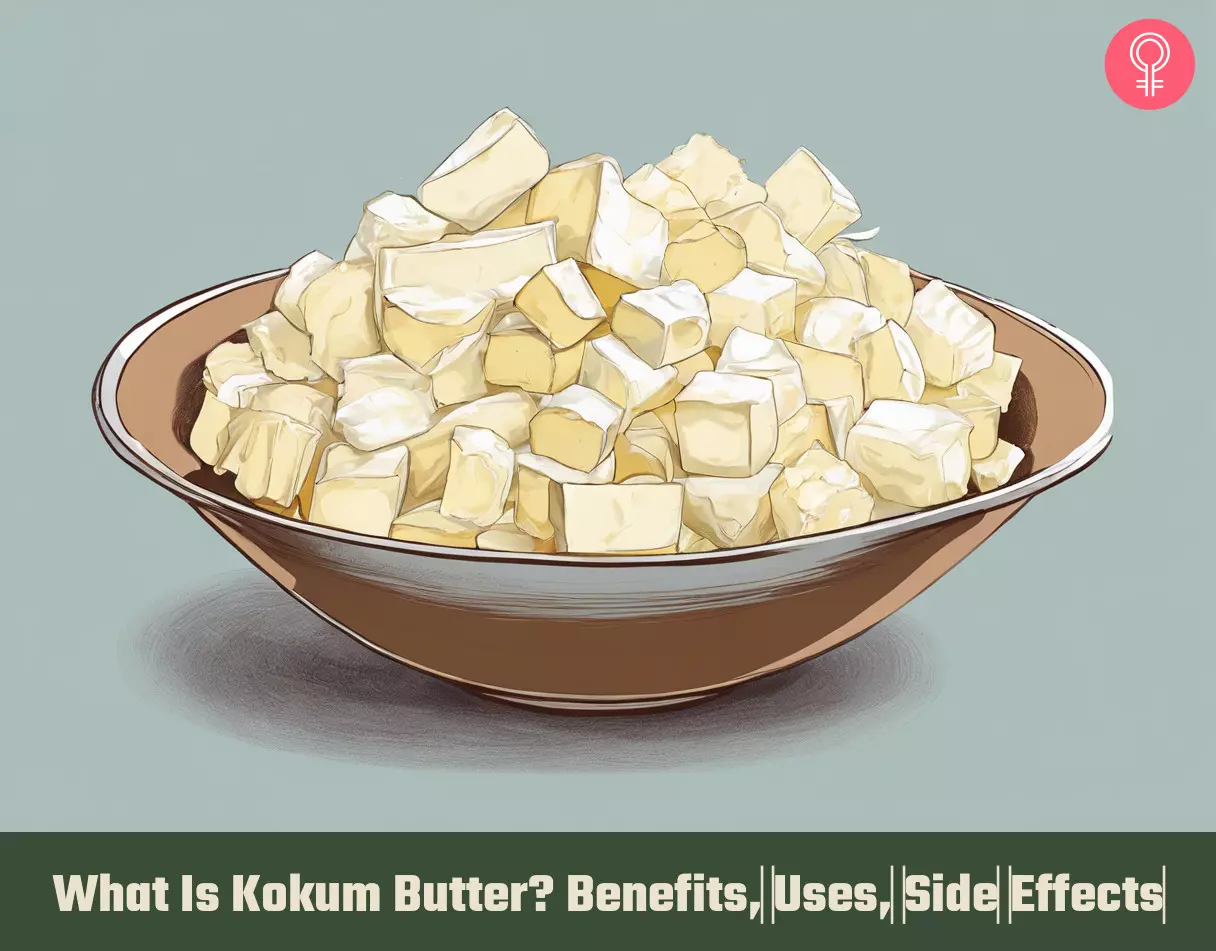
Image: Stable Diffusion/StyleCraze Design Team
Discover 8 amazing benefits of kokum butter. Watch this enlightening video to learn how this natural ingredient can help nourish and protect your skin.
Personal Experience: Source
StyleCraze's articles are interwoven with authentic personal narratives that provide depth and resonance to our content. Below are the sources of the personal accounts referenced in this article.
i. D.I.Y. Whipped Kokum Butter ( for hair and skin)https://www.youtube.com/watch?v=59WKO1_goyA
References
Articles on StyleCraze are backed by verified information from peer-reviewed and academic research papers, reputed organizations, research institutions, and medical associations to ensure accuracy and relevance. Read our editorial policy to learn more.
- Kokum Butter
https://link.springer.com/chapter/10.1007/978-3-030-30314-3_62 - Heat-resistant cocoa butter extenders from mahua (Madhuca latifolia) and kokum (Garcinia indica) fats
https://aocs.onlinelibrary.wiley.com/doi/abs/10.1007/s11746-999-0180-6 - 13-week dietary study and in vitro and in vivo genotoxicity studies of a structuring fat produced through a microalgal fermentation process
https://pmc.ncbi.nlm.nih.gov/articles/PMC5615418/ - Emerging role of Garcinol, the antioxidant chalcone from Garcinia indica Choisy and its synthetic analogs
https://www.ncbi.nlm.nih.gov/labs/pmc/articles/PMC2743703/ - Clinical efficacy of Vrukshamla Beeja Taila (Kokum Butter) in the Management of Padadari (Cracked Heels)
https://www.jayumedsci.com/article/2017/2/2/105530jams2017216 - Pharmacological Activity of Garcinia indica (Kokum): An Updated Review
https://www.ncbi.nlm.nih.gov/labs/pmc/articles/PMC8708457/ - Kokum (Garcinia indica)a beneficial underutilised crop: A review
https://thinkindiaquarterly.org/index.php/think-india/article/view/18578/13539 - Kokum (Garcinia Indica) and its Many Functional Components as Related to the Human Health: A Review
https://citeseerx.ist.psu.edu/viewdoc/download?doi=10.1.1.1040.2058&rep=rep1&type=pdf - Application of kokum (Garcinia indica) fat as cocoa butter improver in chocolate
https://onlinelibrary.wiley.com/doi/abs/10.1002/jsfa.1967
Read full bio of Tracy Tredoux
Read full bio of Payal Karnik
Read full bio of Ravi Teja Tadimalla
Read full bio of Himanshi Mahajan






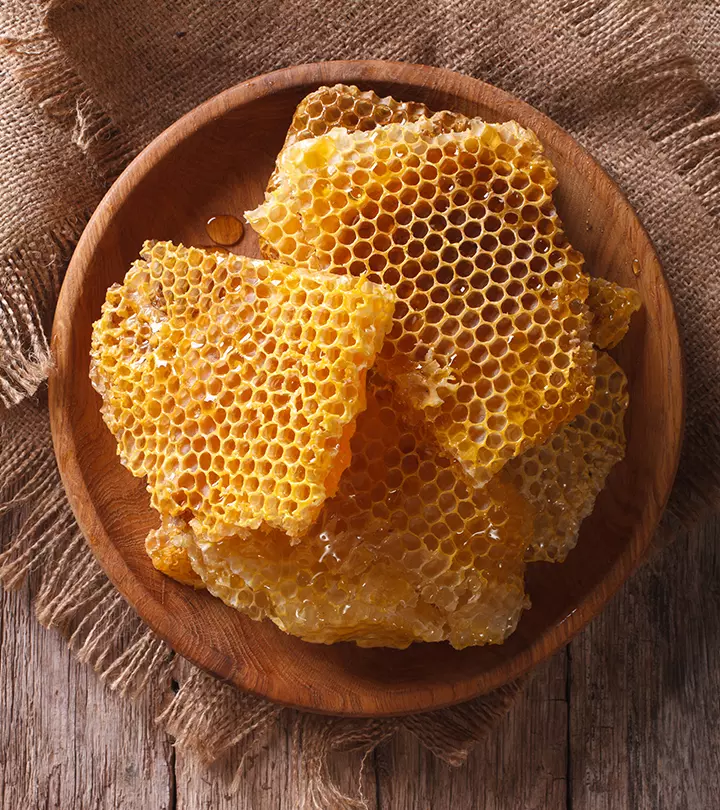
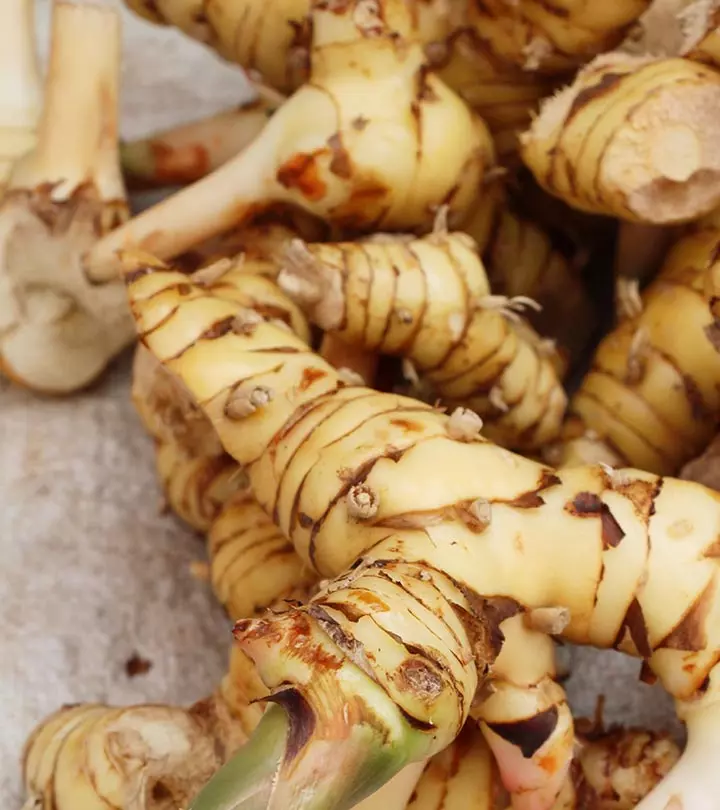

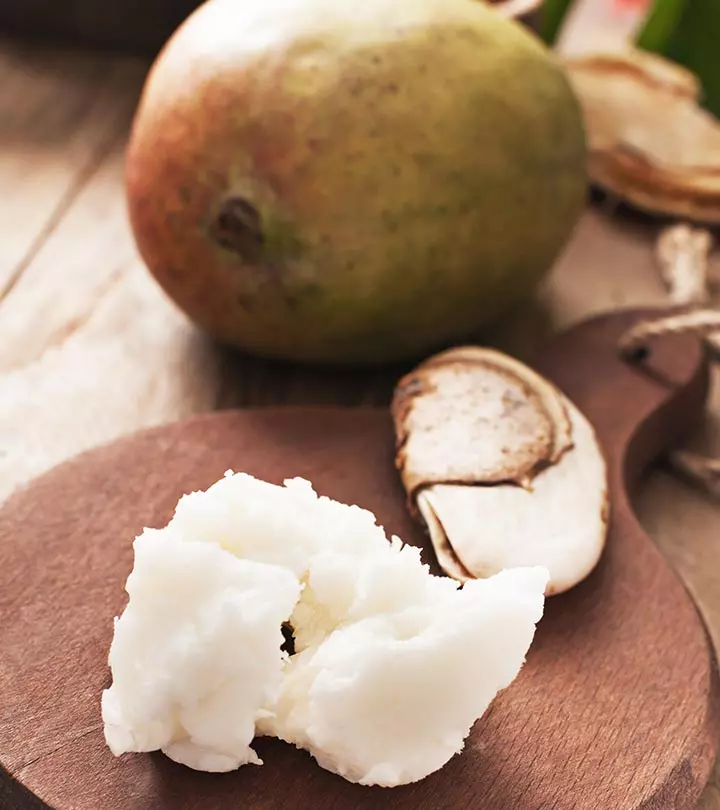
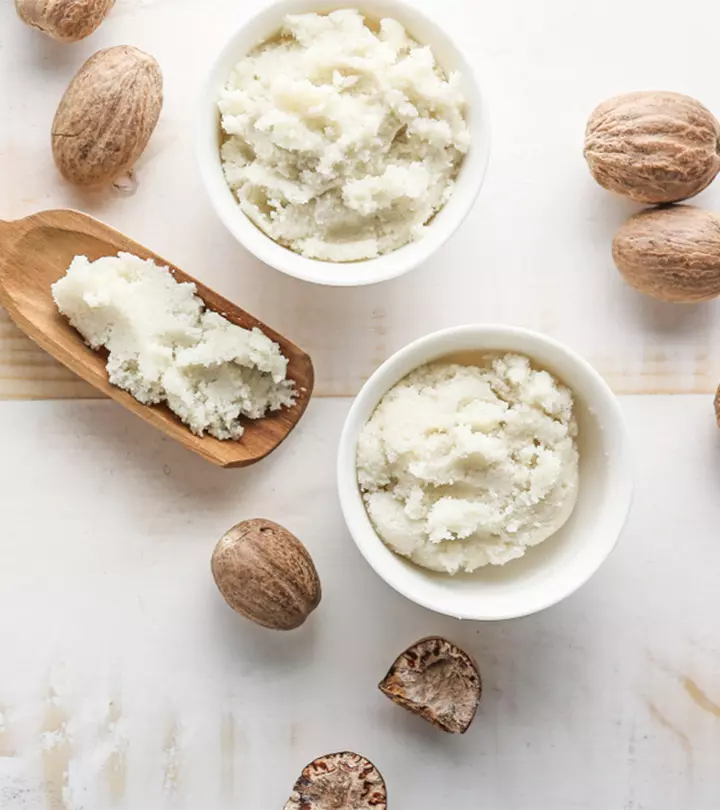
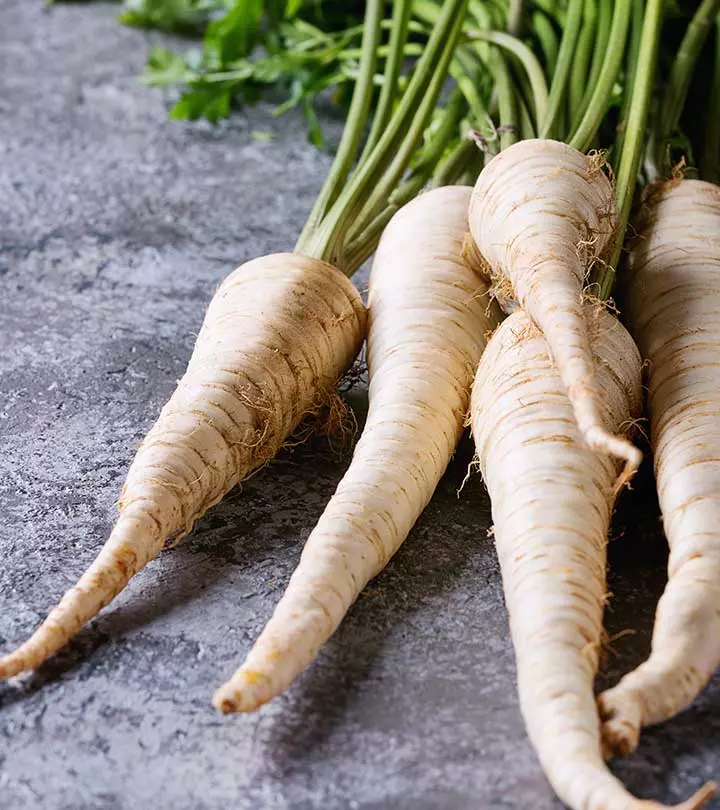
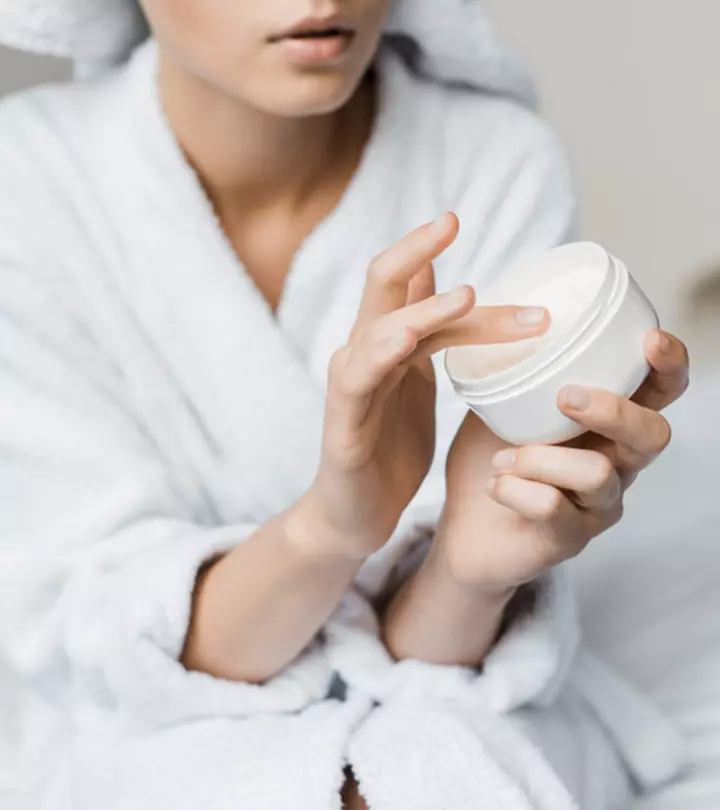


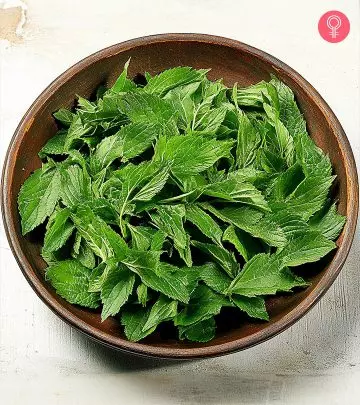
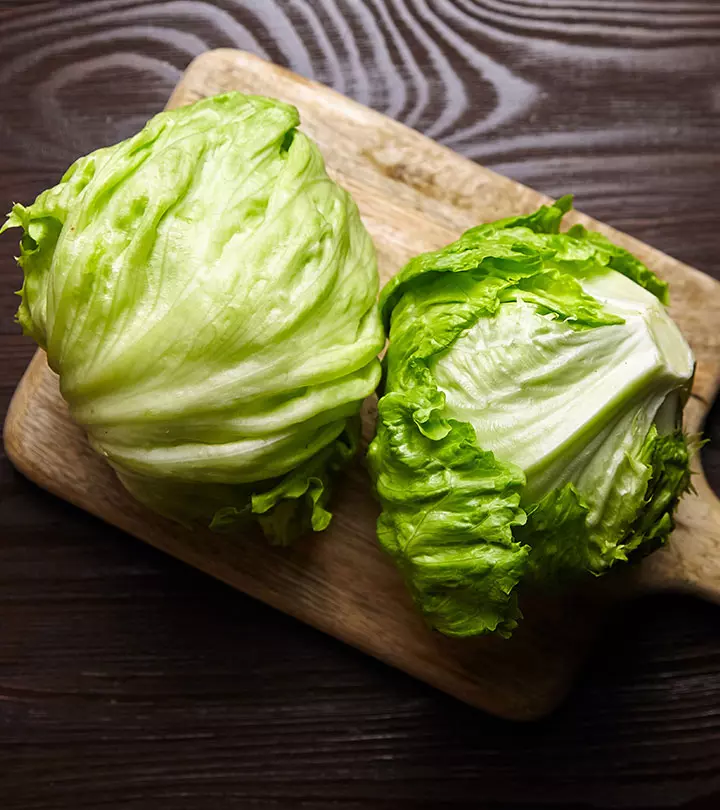
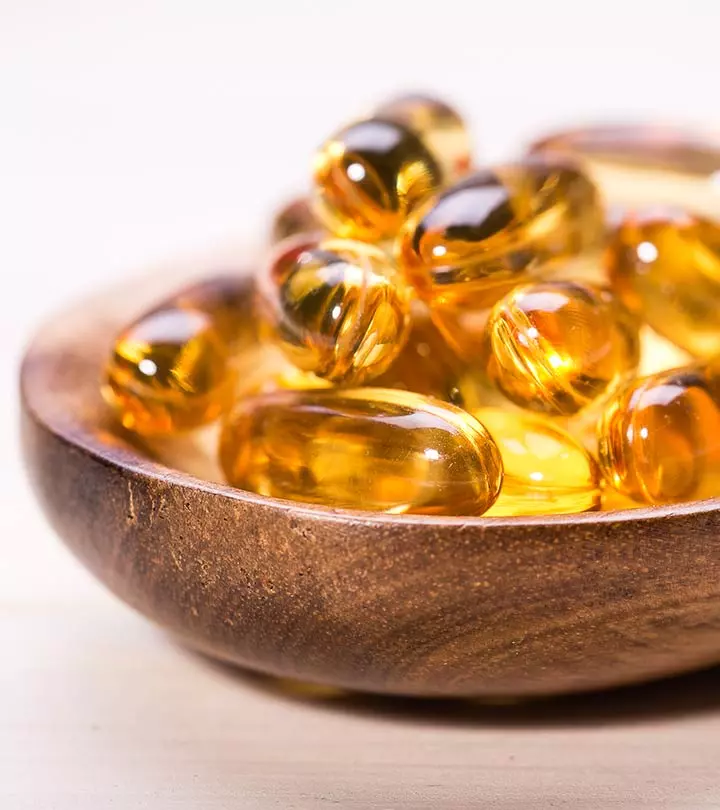
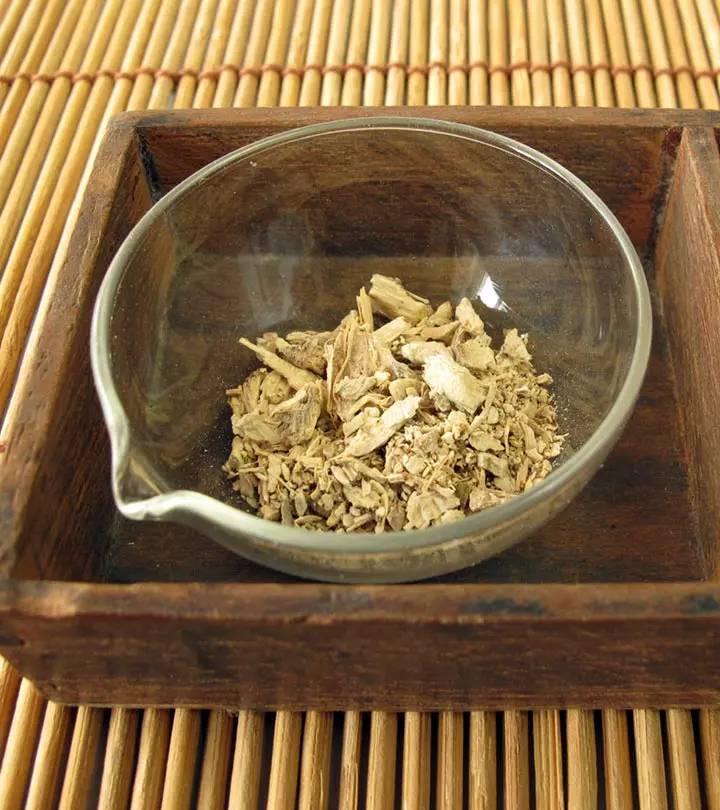
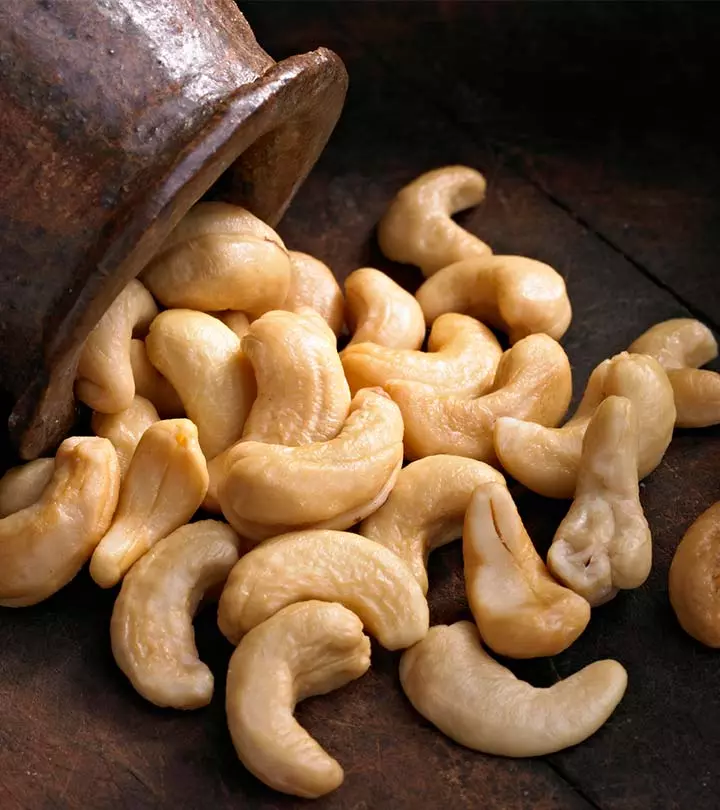
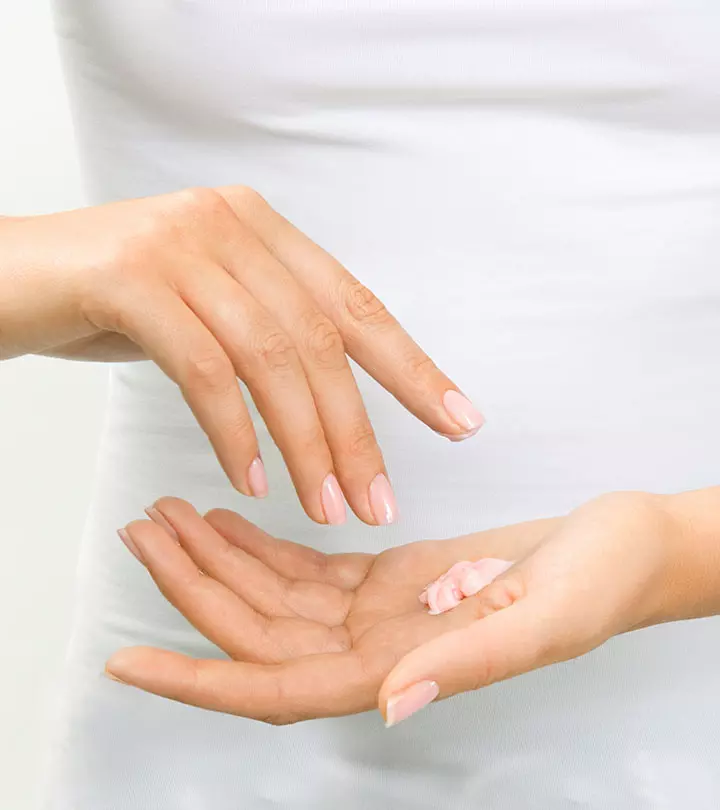

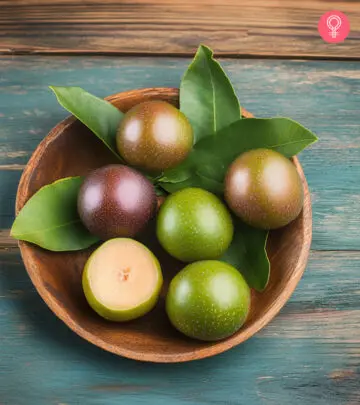
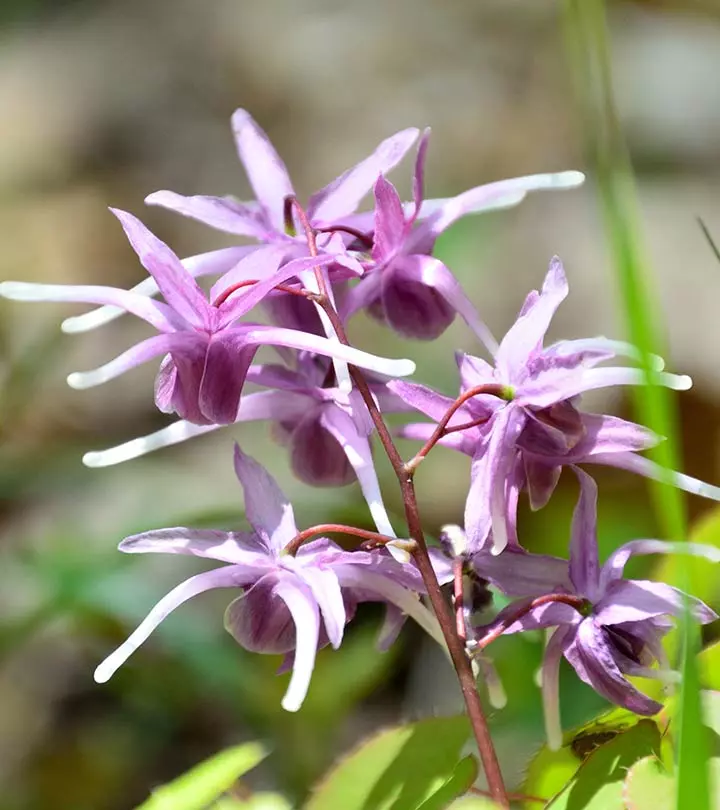
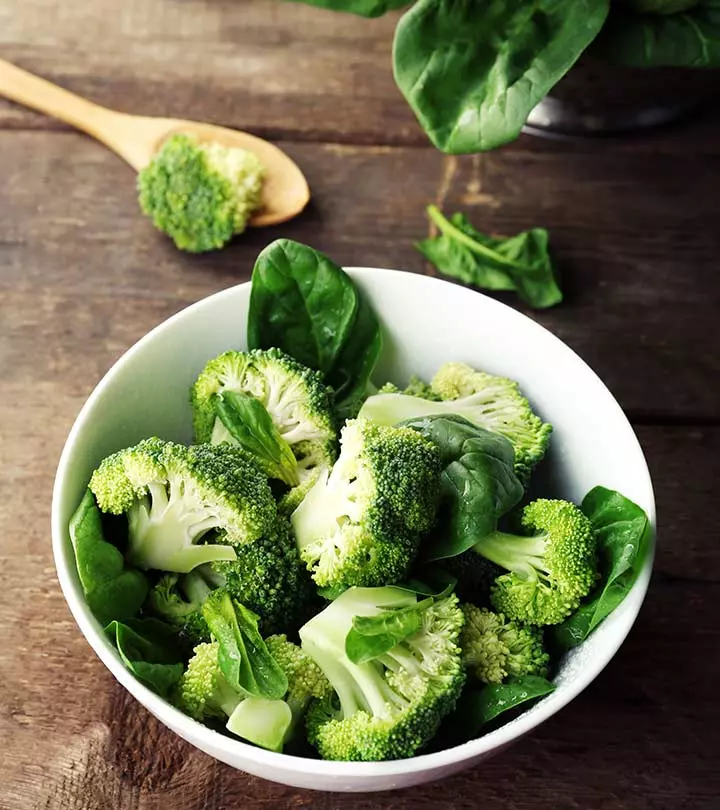
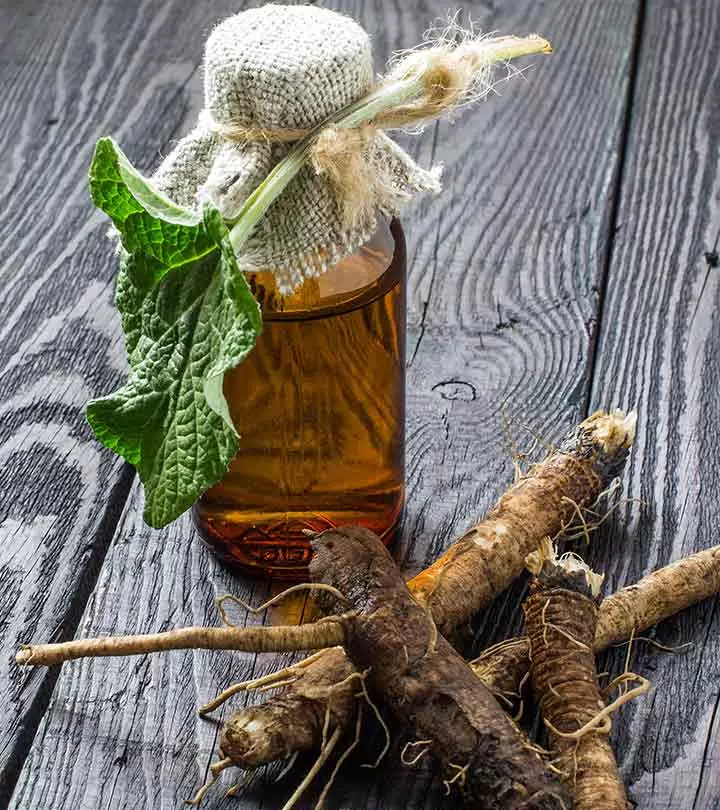
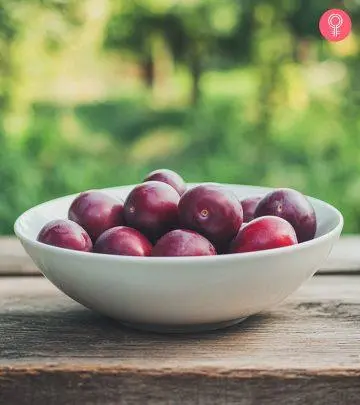
Community Experiences
Join the conversation and become a part of our empowering community! Share your stories, experiences, and insights to connect with other beauty, lifestyle, and health enthusiasts.